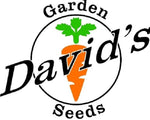Organic Fertilizer
Everyone’s familiar with the benefits of organic farming. It’s now easier than ever to do it at home. And there are some great benefits to your plants and your soil when comparing it with using chemical fertilizers.
Organic fertilizer is made from plant and animal matter. Just like regular fertilizer, you can get it in a variety of forms: from dry, slow-release fertilizer you mix into the soil to liquids you can dilute with water. Common things used in organic fertilizers are cow manure, kelp, bat guano, composted plant material, fish, alfalfa, corn, bone meal, seed meal, among other things.

In addition to health benefits for the people eating the food, organic fertilizers also benefit the soil. Soils rich in organic material remain loose, hold more water and nutrients as well as help the growth of helpful soil organism. All of these things help grow healthier plants. If you only add chemicals to your soil, you’ll slowly lose the organic material.
Unlike chemical fertilizers, organic fertilizers require microorganisms to help break down nutrients so that they can be absorbed by the plant. Dry soil or soils below 50 degrees slow or halt this process until adequate soil conditions return for the organisms to thrive.
Due to the growing popularity of organic gardening, you can now find a variety of organic fertilizer options at most gardening stores both in retail stores and online. And just like chemical fertilizers, you will find recipes specifically geared for whatever you’re growing: flowers, vegetables, fruits or citrus. While fish emulsion isn’t recommended for indoor use due to its smell, organic fertilizers are great for indoor as well as outdoor gardening.
If you wish to save some money, there are a number of organic fertilizers you can make at home. One of the easiest is compost. Compost provides rich soil in which to plant. All you need to do is gather all of your organic kitchen scraps (everything from coffee to egg shells to vegetables and fruits) and put them in a composting bin. Keep in mind that your compost will only be organic if the things you put in it are organic, but either way, it’s a great natural fertilizer. Compost can be mixed into the soil with a hoe or tiller before planting.
Just to be clear, David's Garden Seeds® does not sell organic fertilizer. This page talks about you making your own organic fertilizer for use in your backyard garden.
More on Organic Fertilizer
Complete Organic Fertilizer:
½ part kelp meal
1 part bone meal
½ part dolomitic lime
4 parts soybean meal
½ part agricultural lime
Mix ingredients well. Apply 4 to 6 quarts for every 100 square feet of your raised garden beds. Mix into the soil to a depth of at least 6 inches. This fertilizer is meant to be used only once per year. Using it more frequently will add too much lime to your soil. This mix provides a great balance of major plant nutrients, but not much of the minor nutrients. Over a period of three or four years, if you are not replacing the minor nutrients like copper and zinc, your soil will be imbalanced. This fertilizer is great for revitalizing poor soil.
Phosphate is good for blooms and setting fruit.







Just another great educational article by this folks. I am a 70 yr old veteran, been gardening and such, for many years, including medicinal gardening in line with our Apache heritage. I am impressed, very impressed, with your guidance and knowledge. We are up by Helotes,Tx and it is good to deal with a local, rather than big box folks. You know the area,local seasons,and what works HERE, for us, not down yonder. Thanks again. I will mention you to my people n friends, perhaps stop by. I drive down your way ,especially when attending Pow Wows.
Leave a comment